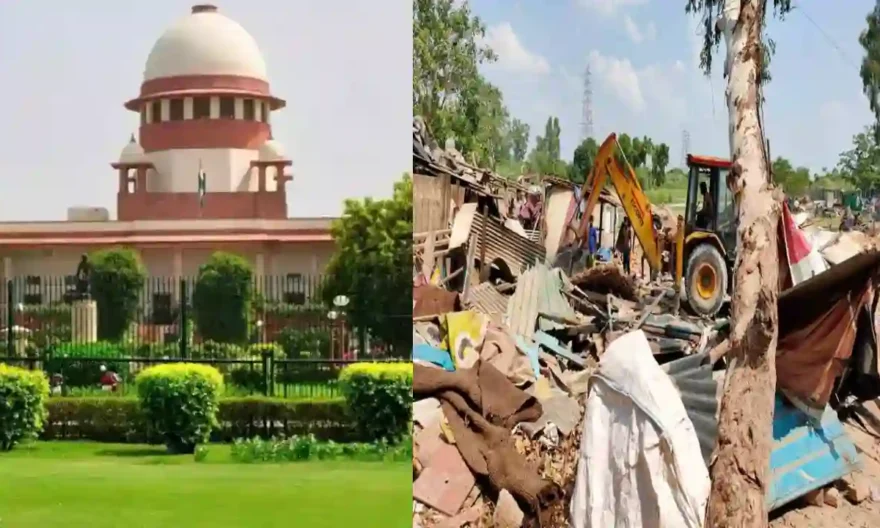
The Supreme Court on Monday refused to hear an impleading suit filed by Gyaspur Colony residents challenging a Delhi High Court order regarding their rehabilitation demolitions.
A Bench of KM Joseph and BV Nagarathna was hearing an impleading suit filed by residents of Gyaspur Colony in South Delhi challenging a Delhi High Court order pertaining to their rehabilitation under the Delhi Slum and JJ Rehabilitation and Relocation Policy, 2015.
The bench, however, left alternative options available to the applicants and allowed them to pursue them.
The Interlocutory Application (IA) was submitted in a case filed by Sarojini Nagar jhuggi residents against demolition/eviction orders that did not include rehabilitation or relocation of the Slum Dwellers. In April 2022, the Court ordered the Central Government to stop using forceful measures to expel them.
According to the Delhi High Court’s judgement dated August 4, 2022, the applicant’s dwellings were demolished by the Delhi Development Authority without providing any rehabilitation to the residents.
On April 19,2022, the Delhi High Court ordered that in order to get rehabilitation under the Delhi Slum and JJ Rehabilitation and Relocation Policy, 2015, the respective Jhuggi Jhopri Basti must be notified by the nodal body Delhi Urban Shelter Improvement Board.
The Bench stated its disinclination to hear the IA at the outset of the hearing, noting that the main plea was pending before the High Court.
“First of all, it’s an interim order dated 04.08.2022. Its earlier order has been vacated. As a result of which, it has been demolished. Your claim is rehabilitation. You have a remedy. First thing is, your writ petition itself is not disposed of,” the Bench stated.
The Bench then instructed the counsel to file an appeal against the April 19 judgement, observing that the two colonies in question, Sarojini Nagar Colony and Gyaspur Colony, were distinct in terms of history and other factors.
“Your history is that you came in 2002, whereas they (Sarojini Nagar residents) have been there since 1980,” the Bench said.
“Come through that route, just because you are in Delhi, you can implead? What about people in other parts of India? Can they come like this? Convenience of people in Delhi cannot be the consideration. All others have to come through the route – lower court, High court and Supreme Court. You also come through the same route”, the Bench noted.




